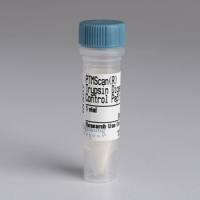-Glutamylcysteine Synthetase in Lung Cancer: Effect on Cell Viability
互联网
523
Lung tissue is exposed to higher concentrations of oxygen than most other tissues. In addition, cigarette smoke and environmental toxic particles not only contain reactive oxygen species (ROS), but also enhance ROS production and activate various oxidant generating mechanisms in the cell. ROS include a number of highly reactive oxygen (superoxide radical O2 - hydrogen peroxide H2 O2 , hydroxyl radical OH) and nitrogen (nitric oxide NO, peroxynitrite ONOO) metabolites (1) . At low concentrations, ROS may play a fundamental role in the regulation of signal transduction (2) , but persistent oxidant exposure can also cause injury to almost all cellular components, including membrane lipids and the genetic material of the cell. ROS also appear to play an important role in cancer biology, carcinogenesis, tumor growth, and drug therapy. Many aspects of ROS mechanisms in these pathways remain unsolved, but it has been hypothesized that antioxidant enzymes may play a role in the proliferation and apoptosis of cancer cells, and in the resistance of malignant cells to chemotherapeutic agents and radiation (3 -5) .







